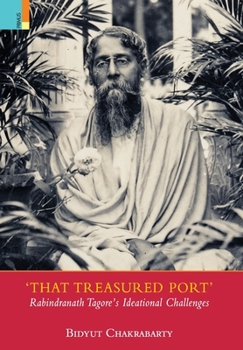That Treasured Port: Rabindranath Tagore's Ideational Challenges
Rabindranath Tagore (1861-1941) represented an ideational universe in which universal humanism was one of the most significant pillars. In conventional terms, Tagore is conceived as a poet which is, in reality, a partial description of the role he discharged in favour of his distinct politico-ideological priorities. He was a visionary who always privileged humanity above all. 'That Treasured Port': Rabindranath Tagore's Ideational Challenges demonstrates how a perusal of his enormous oeuvre reveals that while expressing his preference for a poetic voice, he also articulated his particular mode of thinking which was attuned not only to the contemporary context but much beyond. His views were thus transcendental since he dealt with issues which are useful to safeguard humanity, regardless of class, colour and creed. What deserves attention is his ability to understand the prevailing socio-economic and politico-cultural reality from the point of a distinct perception which was based on both-Western as well as indigenous discourses. Tagore evolved his conceptual parameters not merely on the basis of India's intellectual wisdom but also on the basis of the ideas he derived from the Enlightenment values; this reinforces the argument that the bard was open to multiple politico-ideological influences which, he found, were pivotal to the process of conceptualizing a collective well-being. One must not however forget that Tagore was not alone in his pursuit; it was complemented by his equally sensitive colleagues such as Gandhi, Ambedkar, among others.





